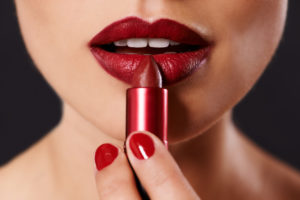 Cultural issues can heavily affect women’s sexuality, according to a study published in Sexuality & Culture. They are particularly salient for women who are lesbian and bisexual.
Cultural issues can heavily affect women’s sexuality, according to a study published in Sexuality & Culture. They are particularly salient for women who are lesbian and bisexual.
Prior Research
Previous research focused on the way individual factors affect sexuality. For instance, a 2016 study showed women who endorse benevolent sexism are less likely to assert their sexual needs. They are also more likely to tolerate sexual selfishness from their partners.
A 2017 study found relationship issues often prompt women to feign orgasms. They may be prioritizing their partner’s ego or avoiding an argument. Sometimes women fake orgasms to end sex sooner.
Despite the breadth of research on female sexuality, the Sexuality & Culture study is one of the first to compare desire in heterosexual and non-heterosexual women.
Cultural Factors in Women’s Sexuality
This study involved interviews with 31 women ages 20-69. The researchers interviewed women identifying as bisexual, heterosexual, and lesbian. Questions focused on the relationships between women’s sexual desire, their identity, and their experiences.
Cultural themes played a key role in women’s sexual experiences. The most prominent themes included:
- Gender roles: The gender binary, relationship dynamics, and body image concerns
- Religion: Spiritual beliefs regarding sex and gender
- Cultural shifts: Changes in sexual taboos and expectations
- Minority stress: Heteronormativity, stigma, and coming out
These cultural themes affected a diverse group of women. However, their role was most prominent among women who identified as non-heterosexual. The researchers suggest this disparity occurs because non-heterosexual women must face challenges related to both sexism and heteronormativity. Compounded stigmas seem to increase their sensitivity to cultural expectations.
To empower women’s sexual expression, advocates should be mindful of how systems of privilege affect sexual desire. Individuals experiencing distress or difficulty relating to these issues may find it beneficial to discuss them with a counselor or therapist.
References:
- LGBQ* women’s sexual desire particularly impacted by social and cultural pressures. (2017, December 06). University of Kentucky News. Retrieved from https://uknow.uky.edu/research/lgbq-women-s-sexual-desire-particularly-impacted-social-and-cultural-pressures
- Rosenkrantz, D. E., & Mark, K. P. (2017). The sociocultural context of sexually diverse women’s sexual desire. Sexuality & Culture. doi:10.1007/s12119-017-9462-6

The preceding article was solely written by the author named above. Any views and opinions expressed are not necessarily shared by GoodTherapy.org. Questions or concerns about the preceding article can be directed to the author or posted as a comment below.

 Sensate Focus: Getting Out of Your Head and Into Your Body During Sex
Sensate Focus: Getting Out of Your Head and Into Your Body During Sex Bridge the Orgasm Gap: New Language to Describe Sexual Pleasure
Bridge the Orgasm Gap: New Language to Describe Sexual Pleasure 3 Simple Ways LGBT Couples Can Revive Their Sex Lives
3 Simple Ways LGBT Couples Can Revive Their Sex Lives

Please fill out all required fields to submit your message.
Invalid Email Address.
Please confirm that you are human.
Leave a Comment
By commenting you acknowledge acceptance of GoodTherapy.org's Terms and Conditions of Use.